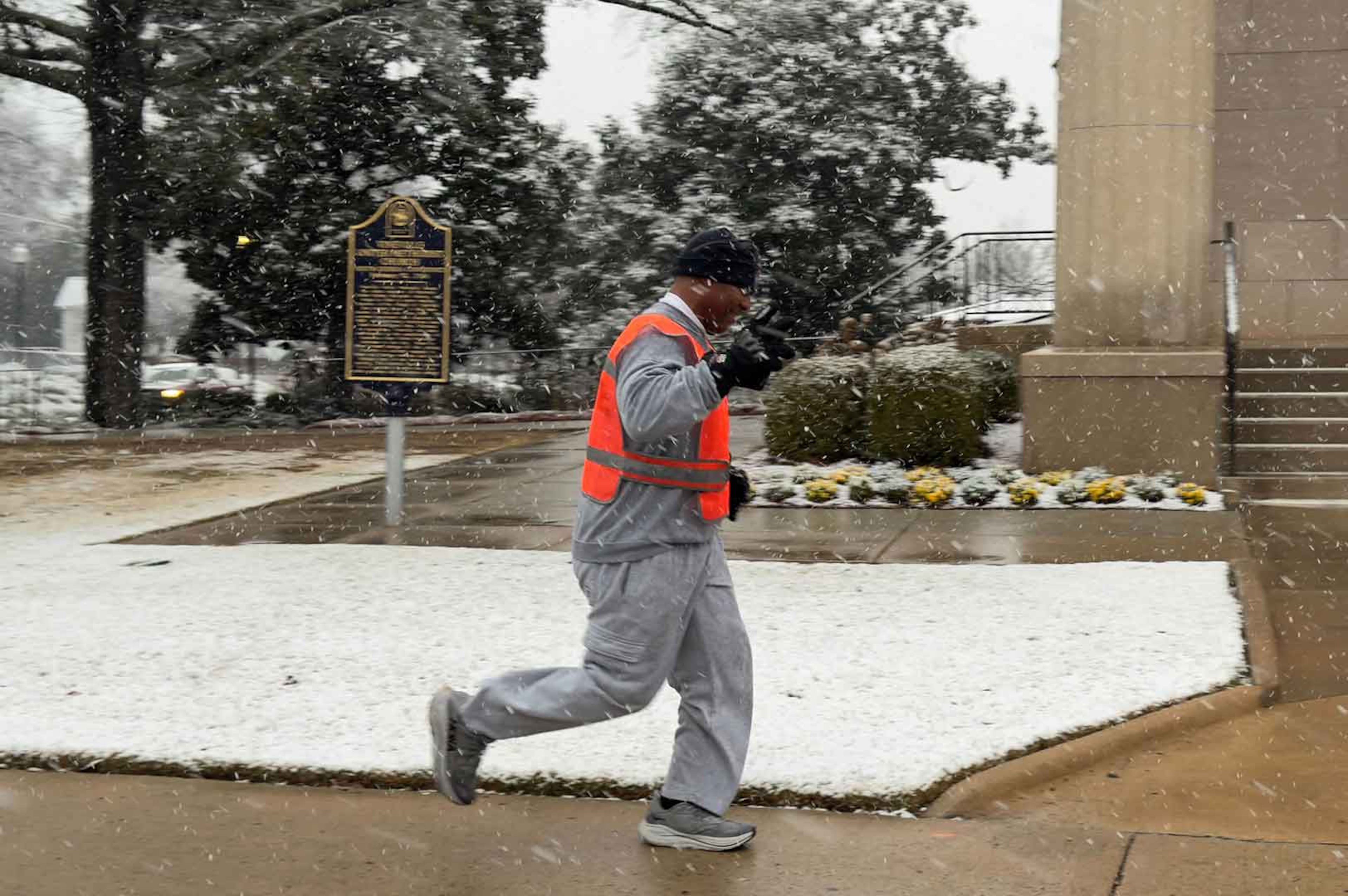Fulton judge: Portions of Trump grand jury report to be released this week

A Fulton County judge said Monday that he plans to keep private portions of a special grand jury report examining whether former President Donald Trump and his allies criminally meddled in Georgia’s 2020 elections. The report, which comes after an eight-month probe, apparently recommends individuals be indicted.
But Superior Court Judge Robert McBurney said he would release three parts of the document on Thursday, including the introduction, conclusion and a section in which the grand jury “discusses its concern that some witnesses may have lied under oath during their testimony to the grand jury.”
The eight-page order came almost three weeks after McBurney heard arguments from Fulton County District Attorney Fani Willis that the entire final report should remain under wraps until she makes indictment decisions, which she said were “imminent.” At that same hearing, a coalition of media organizations, including the Atlanta Journal-Constitution, argued that the public interest demanded that the full document be released, just as grand jurors had requested.
More about the Fulton grand jury
- Alerts: Sign up to receive breaking news texts on the investigation
- Podcast: Listen to the AJC series about the special grand jury
- Complete coverage: All about the Trump investigation
Georgia law says judges “shall order the publication as recommended” by grand jurors, provided that the jurors stick to the scope of their prescribed mission.
McBurney noted this grand jury did just that.
“Indeed, it provided the district attorney with exactly what she requested: a roster of who should (or should not) be indicted, and for what, in relation to the conduct (and aftermath) of the 2020 general election in Georgia,” he said.
“But, as with many things in the law, it is not that simple,” McBurney noted.
Even though lawyers of investigation targets did not attend the recent hearing to argue on behalf of their clients, McBurney said the rights of future defendants still need to be protected.
“Put differently, there was very limited due process in this process for those who might now be named as indictment-worthy in the final report,” McBurney wrote.
The judge rejected arguments from the news outlets that the final report is a court record and therefore subject to public disclosure. He compared the report to a wiretap application or a search warrant affidavit, which can only be publicly accessed after an investigation is complete.
Following an appearance before a state Senate subcommittee at the Capitol, Willis said she had no plans to appeal the decision.
“I’m pleased with it,” she told The Atlanta Journal-Constitution.. “I think it’s a good balancing act, what he did and it dealt with the concerns I gave to the court.”
In a statement, Willis said she agrees with McBurney. “I believe Judge McBurney’s order is legally sound and consistent with my request,” she said. “I have no plans to appeal today’s order.”
Tom Clyde, who argued on behalf of the media organizations, did not have an immediate comment.
The special grand jury was seated in May to help Willis with her criminal investigation, launched two years ago this month, that centered on Trump’s leaked phone conversation with Georgia Secretary of State Brad Raffensperger. During that Jan. 2, 2021, phone call, Trump pressed Raffensperger to “find” 11,780 votes, enough to overturn Democrat Joe Biden’s narrow victory to in Georgia.
The probe has since expanded to include the appointment of a slate of 16 “alternate” Republican electors, testimony Trump attorney Rudy Giuliani and others gave to Georgia lawmakers and a breach of elections data in Coffee County, Ga., among other events between Nov. 2020 and Jan. 2021. Willis said last month that jurors had interviewed 75 witnesses.
At least 18 people were named investigation “targets” and warned by prosecutors that they could face charges, including Giuliani and David Shafer, the head of the Georgia GOP who abruptly announced last week that he would not seek another term.
The decision as to whether to seek indictments now lies solely with Willis, and she can do so at any time using regular grand juries currently in operation. At last month’s hearing, Willis strongly suggested that her office would be seeking indictments.
In his order, McBurney noted that the special grand jury was largely controlled by the DA’s office and defense lawyers were not allowed to appear and argue on behalf of any of the investigation’s targets. Moreover, “potential future defendants were not able to present evidence outside the scope of what the district attorney asked them.” And they could not call their own witnesses to rebut what other witnesses said about them and they had no ability to present mitigating evidence, McBurney wrote.
“That does not mean that the district attorney’s investigative process was flawed or improper or in any way unconstitutional,” McBurney said. “By all appearances, the special purpose grand jury did its work by the book. The problem here, in discussing public disclosure, is that that book’s rules do not allow for the objects of the district attorney’s attention to be heard in the manner we require in a court of law.”
So the publication of the final report’s recommendations of who should be indicted will be kept under wraps because “fundamental fairness requires this,” the judge wrote. “(T)hose recommendations are for the district attorney’s eyes only – for now.”
Regarding the three sections that he does plan to release, McBurney noted that while “publication may not be convenient for the pacing of the district attorney’s investigation, the compelling public interest in these proceedings and the unquestionable value and importance of transparency require their release.”
McBurney added that because the grand jury did not identify the witnesses who it believed lied under oath, that section can be publicly disclosed at this time.
Willis had earlier described her decision on indictments as “imminent,” but she clarified on Monday while talking to the AJC.
“Legally imminent, not reporter imminent,” she said.
McBurney directed the DA’s office to meet with him in the days ahead to discuss the logistics of publicizing the relevant portions of the report and determine whether anything else should be redacted. He told the DA’s office to provide periodic updates on the status of its criminal investigation so he could “reassess” if other portions of the report “can properly be disclosed.”




